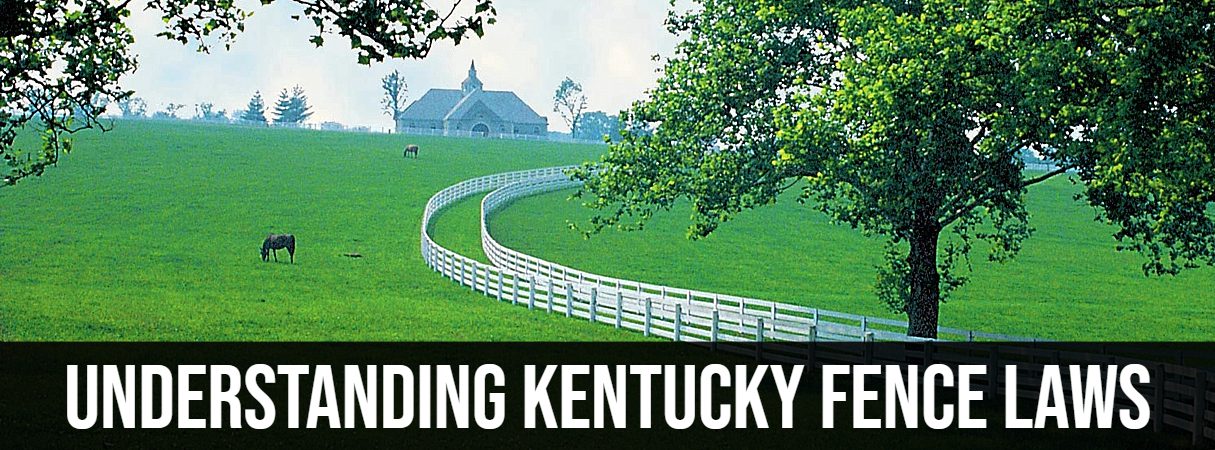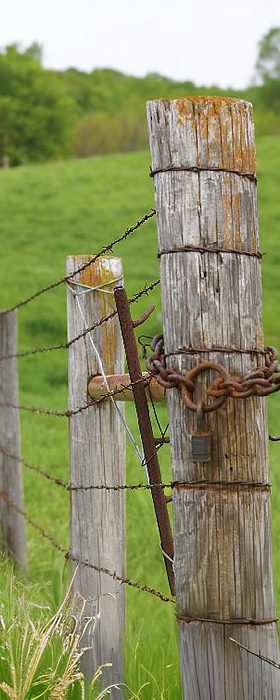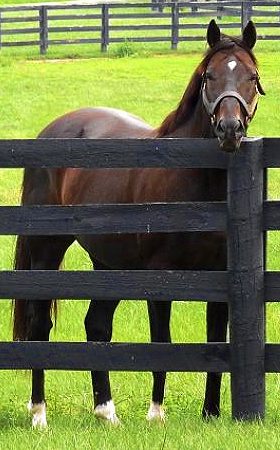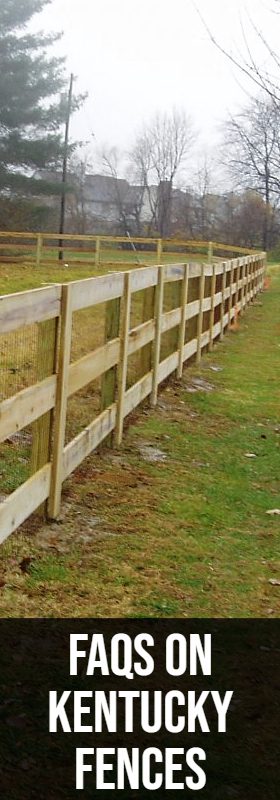
Introduction to Kentucky Fence Laws
When it comes to keeping your livestock in and your neighbors out (or maybe it’s the other way around?), understanding Kentucky’s fence laws is a must. Whether you’re a rural landowner or a city slicker with a passion for property lines, this guide will give you the lowdown on what you need to know about fencing in the Bluegrass State.
Before you start hammering in posts and stringing up wire, it’s important to know the rules of the game. Kentucky’s fence laws are like that unspoken code at the neighborhood barbecue – everyone should know it, but few actually do. Whether you’re trying to keep peace with the neighbors or avoid a legal spat, understanding these laws is the first step. They dictate not only where and how you can build a fence but also who’s responsible for maintaining it.

Legal Definitions & Key Terms
What is a Lawful Fence in Kentucky?
A “lawful fence” in Kentucky isn’t just any old barrier you throw up. It has to meet specific criteria, like a certain height and material. Think of it as the Cadillac of fences – only the best will do. According to the Kentucky Revised Statutes, a lawful fence is one that can effectively restrain livestock. The specifics may vary depending on local ordinances, but generally, if your fence can keep a determined cow from wandering off, you’re on the right track.
Understanding Property Lines & Boundary Disputes
Ever tried sharing a pizza with someone who can’t agree on the slice sizes? That’s what it can feel like when property lines are in question. Before you start digging post holes, it’s crucial to know exactly where your property ends and your neighbor’s begins. Disputes over property lines can lead to more headaches than a Black Friday sale. Kentucky law allows property owners to have their land surveyed to establish these boundaries clearly.
Fence Construction Regulations
Materials Allowed for Lawful Fences
Not all fences are created equal. In Kentucky, you can’t just use any material you fancy. Forget about stringing together a line of old tires or using cardboard – your fence needs to be made from sturdy, durable materials. Wood, wire, and even stone are generally acceptable, but the key is that the fence must be capable of holding back livestock. So, unless you’ve got a herd of particularly timid sheep, you’ll want to opt for something with a bit more heft.
Height & Design Requirements
In Kentucky, the height and design of your fence aren’t just about aesthetics; they have legal implications too. The fence must be high enough to prevent livestock from jumping over or squeezing through. Typically, this means a height of at least 4 feet, but check local ordinances to be sure. And remember, while you might be tempted to add a little decorative flair, your primary goal is functionality – the law doesn’t care if your fence is pretty, just that it works.
Division Fences Between Properties
When you and your neighbor share a fence, it’s called a division fence. And just like dividing up a pack of gum, there’s a right way and a wrong way to do it. Kentucky law states that both property owners are responsible for the construction and upkeep of a division fence. So, if the fence needs repairs, don’t expect your neighbor to foot the bill all by themselves – it’s a team effort.
Responsibilities of Property Owner
Shared Fence Maintenance Obligations
Maintaining a shared fence can be a bit like co-parenting – it requires cooperation and a clear understanding of responsibilities. Under Kentucky law, both parties who benefit from the fence are responsible for its maintenance. If your neighbor’s prize bull keeps testing the strength of the fence, you might want to have a chat about splitting the repair costs.
Liability for Trespassing Livestock
Now, here’s where it gets interesting – and potentially expensive. If your livestock decides to throw a wild party on your neighbor’s land because your fence wasn’t up to snuff, guess who’s liable? Yep, that’s you. Kentucky law holds livestock owners responsible if their animals breach a lawful fence and cause damage. So, it’s in your best interest to make sure your fence is as secure as Fort Knox.
Cost Apportionment for Fence Construction
Building a fence isn’t cheap, but the costs don’t have to fall on your shoulders alone. If the fence is a division fence, Kentucky law allows you to split the cost with your neighbor. It’s like going Dutch on dinner – fair and square. Just make sure you have a clear agreement, preferably in writing, so there are no surprises down the road.

Resolving Fence Disputes in Kentucky
Legal Steps for Resolving Boundary Disputes
So, what happens if you and your neighbor can’t agree on where the fence should go? Kentucky has a process for that, too. If a friendly chat over the fence line doesn’t resolve things, you might need to take legal action. Start by getting a survey, and if that doesn’t settle the matter, you can take it to court. Just be prepared – fence disputes can get as heated as a summer day in Kentucky.
Mediation & Court Procedures
If you’re not keen on going to court, mediation is a less adversarial option. A neutral third party can help both sides come to an agreement without the need for a judge’s ruling. It’s a bit like a family intervention – sometimes, all you need is a referee to keep things civil.
When to Hire a Lawyer
Let’s face it, sometimes things get too complicated for DIY solutions. If your fence dispute is more tangled than a ball of twine, it might be time to bring in a lawyer. They can help navigate the legal intricacies and make sure your rights are protected. Plus, having a legal expert in your corner can give you peace of mind that you’re not missing any crucial details.
Special Considerations
Fencing in Rural vs. Urban Areas
Not all fences are built the same, and where you live makes a big difference. In rural Kentucky, fences are often designed to keep livestock in. But in urban areas, the focus might be more on privacy or aesthetics. The laws may vary depending on whether you’re out in the country or smack in the middle of Louisville, so it’s important to check your local regulations.
Historic Fence Regulations and Their Modern Impact
Kentucky’s fence laws have been around for a while, and some of them date back to a time when fences were more about keeping cattle in than about keeping nosy neighbors out. Understanding these historic regulations can give you insight into why certain laws exist today – and help you avoid any pitfalls that could come from following outdated advice.
Conclusion to Kentucky Fence Laws
In conclusion, navigating Kentucky’s fence laws might seem like a daunting task, but with the right knowledge, you can ensure that your property boundaries are both legally sound and neighbor-approved. Whether you’re planning to build a new fence, maintain an existing one, or resolve a dispute, understanding these laws puts you a step ahead. Remember, a well-constructed fence isn’t just about keeping things in or out; it’s about fostering good relationships with those around you. So, take the time to build your fence right, and you’ll find that it does more than just mark your territory – it creates peace of mind.
Frequently Asked Questions (FAQs)

1. Do I Need My Neighbor’s Permission to Build a Fence on the Property Line?
Yes, if you plan to build a fence directly on the property line, it’s essential to have your neighbor’s agreement. This is especially important for what’s known as a “division fence,” which both property owners are responsible for maintaining. If both parties agree, it’s wise to document the arrangement and file it with the county clerk’s office to avoid future disputes.
2. How Tall can a Fence be in Kentucky?
In general, Kentucky limits the height of residential fences to 8 feet, but this can vary depending on local zoning ordinances. For example, fences closer to streets or in certain neighborhoods might have stricter height restrictions. It’s always a good idea to check with your local building department before starting construction.
3. Who is Responsible for Maintaining a Shared Fence?
Under Kentucky law, both property owners who share a division fence are jointly responsible for its maintenance. This includes repairs and any necessary replacements. If one owner neglects their responsibilities, the other may have legal recourse to seek compensation for the upkeep.
4. What Happens if Livestock Damages a Neighbor’s Property?
If your livestock breaks through a lawful fence and causes damage to a neighbor’s property, you are liable for those damages. Kentucky law also stipulates that if the same livestock breaches the fence again, the penalties can double, and the neighbor may even claim possession of the livestock until the damages are settled.
5. Do I Need a Permit to Build a Fence in Kentucky?
Yes, in most cases, you will need a permit to build a fence in Kentucky. The type of permit and the specific requirements can vary depending on where you live. It’s also important to check if there are any additional approvals needed, such as from a homeowners’ association, if applicable.